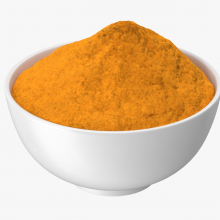Flaxseed, derived from the flax plant, is gaining remarkable attention in the health and wellness arena due to its diverse range of health benefits. Known primarily for its role in aiding digestive health, Flaxseed is rich in dietary fiber which not only helps alleviate constipation but also promotes regular bowel movements, making it a valuable addition to both dietary supplements and food products. Furthermore, flaxseed has shown promising results in managing conditions such as diabetes, high cholesterol, and obesity. Specifically, research suggests that ground flaxseed can enhance blood sugar control in individuals with type 2 diabetes, especially when consumed over a 12-week period. Beyond its medicinal properties, Flaxseed is versatile and can be incorporated into various food items including muffins, breads, and smoothies. As a B2B marketplace for suppliers and buyers of pulses and grains, we provide premium quality Flaxseed that meets industry standards, ensuring that your businesses can benefit from this nutritionally packed superfood. Our Flaxseed is sourced from reputable suppliers, guaranteeing quality, safety, and efficacy for all your food production needs, be it for bakery items or health supplements.
Key Features
| Features | Description |
|---|---|
| High Fiber Content | Flaxseed is an excellent source of dietary fiber, aiding in digestive health and improving bowel regularity. |
| Supports Diabetes Management | Regular intake, especially of ground flaxseed, can slightly enhance blood sugar control in individuals with type 2 diabetes. |
| Cholesterol Lowering | Flaxseed has potential cholesterol-lowering properties which can support heart health. |
| Versatile Usage | Can be added to various recipes, such as muffins and smoothies, offering both health benefits and culinary flexibility. |
| Sourced from Reputable Suppliers | Ensured quality and safety through partnerships with trusted flaxseed suppliers. |
| Attributes | Description |
|---|---|
| Origin | Sourced from premium flax farms. |
| Form | Available in whole seeds and ground form. |
| Packaging | Available in bulk packaging options for large-scale buyers. |
| Shelf Life | Up to 18 months when stored in a cool, dry place. |
| Nutritional Profile | Contains Omega-3 fatty acids, fiber, protein, vitamins, and minerals. |
Key Words
*Disclaimer: The above description has been AI-generated and has not been audited or verified for accuracy. It is recommended to verify product details independently before making any purchasing decisions.
GST
23AEPPJ5436C1ZP
Nature of Business
manufacturer / professional services / contractor / exporter
GlobalLinker Member Since
June 2024
Industry: Agriculture & Agri Products > Agri Produce & Finished Products
Location(s): Indore (India)
Country Of Origin: India
Flaxseed is used for constipation, diabetes, high cholesterol, obesity, and swelling of the kidneys in people with lupus. It is also used for many other conditions, but there is no good scientific evidence to support most of these other uses.
Flaxseed and flaxseed oil have different effects. For information about the oil, see Flaxseed Oil.
All types of pulses and grains buyer and supplier.



Inclusive of all taxes
You Save: 0.00

Indore, India
Service Provider , Manufacturer, Professional Services, Contractor, Exporter, Wholesaler
GST- 23AEPPJ5436C1ZP